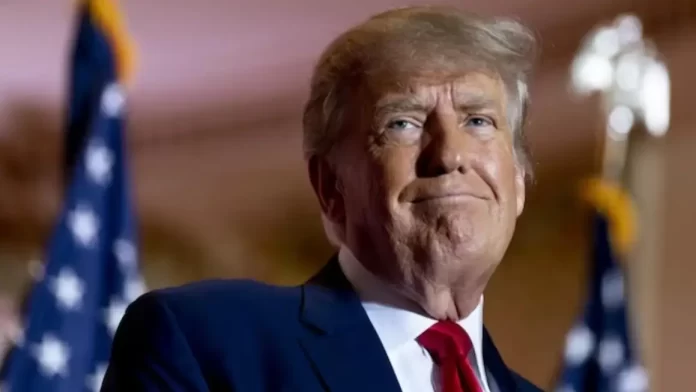Former President Donald Trump’s economic advisers are reportedly exploring measures to prevent nations from shifting away from using the dollar, aiming to counteract emerging moves among key markets to reduce reliance on the US currency.
According to sources familiar with the discussions, options being considered include penalties for allies or adversaries engaging in bilateral trade using currencies other than the dollar. These penalties could include export controls, currency manipulation charges, and tariffs, although the sources spoke anonymously.
The pushback against the dollar’s dominance gained momentum in 2022, particularly after the US imposed severe economic sanctions on Russia, a G20 nation. The move restricted access to the dollar for Russia’s central bank, government officials, and around 2,500 other targets.
President Joe Biden recently signed a measure granting him expanded powers to seize Russian dollar assets to aid Ukraine’s reconstruction. This provision, known as the REPO provision, has raised concerns among Republican lawmakers, who fear it could undermine the dollar’s role in the global financial system.
Last August, the BRICS nations—Brazil, Russia, India, China, and South Africa—discussed de-dollarization at a summit. This group has gained significance after inviting key oil-producing nations like Saudi Arabia and the United Arab Emirates to join, both of which currently peg their currencies to the dollar.
Trump’s economic advisers have discussed targeting the BRICS de-dollarization efforts in a potential second term. Trump himself has expressed a desire for the dollar to remain the world’s reserve currency, both publicly and privately.
While Trump previously considered weakening the dollar to support domestic manufacturing, he now sees little merit in dollar intervention. He advocates for a stable dollar and expects other countries to refrain from interventions aimed at devaluing their currencies.
Authorities in Japan and South Korea have warned against excessive exchange rate movements, with Tokyo reserving the right to intervene. Meanwhile, Chinese authorities have taken steps to stabilize the yuan’s value amidst fluctuations.



